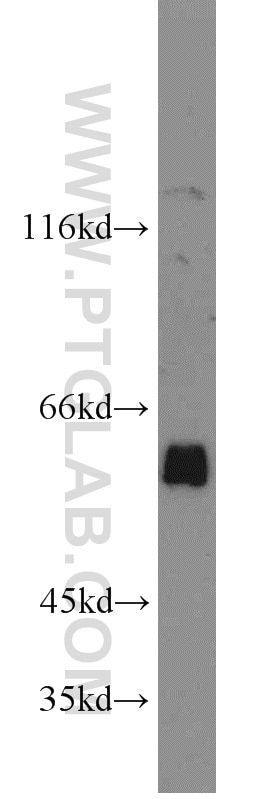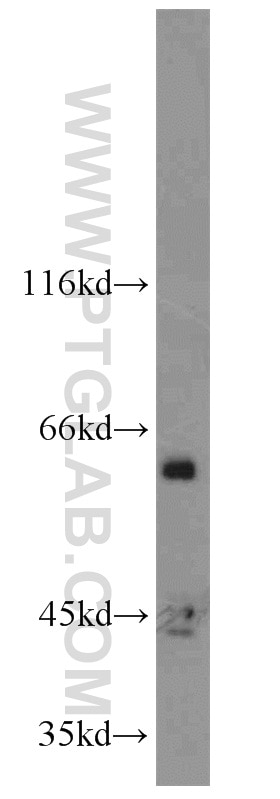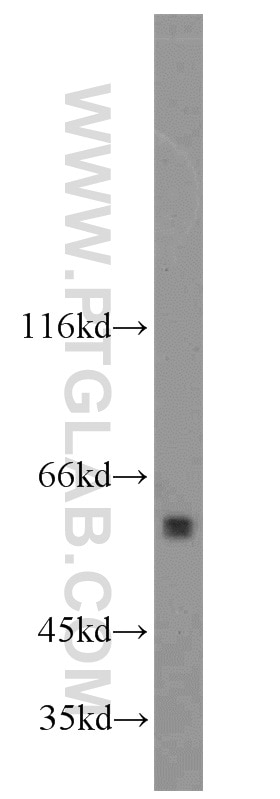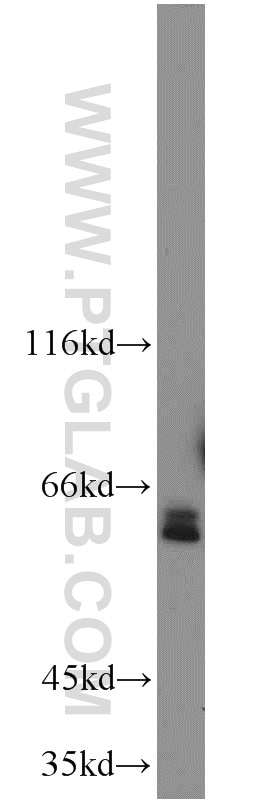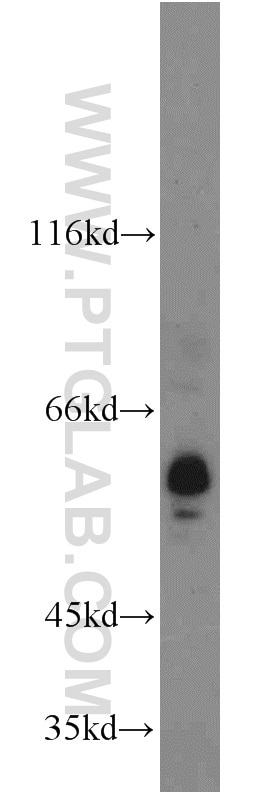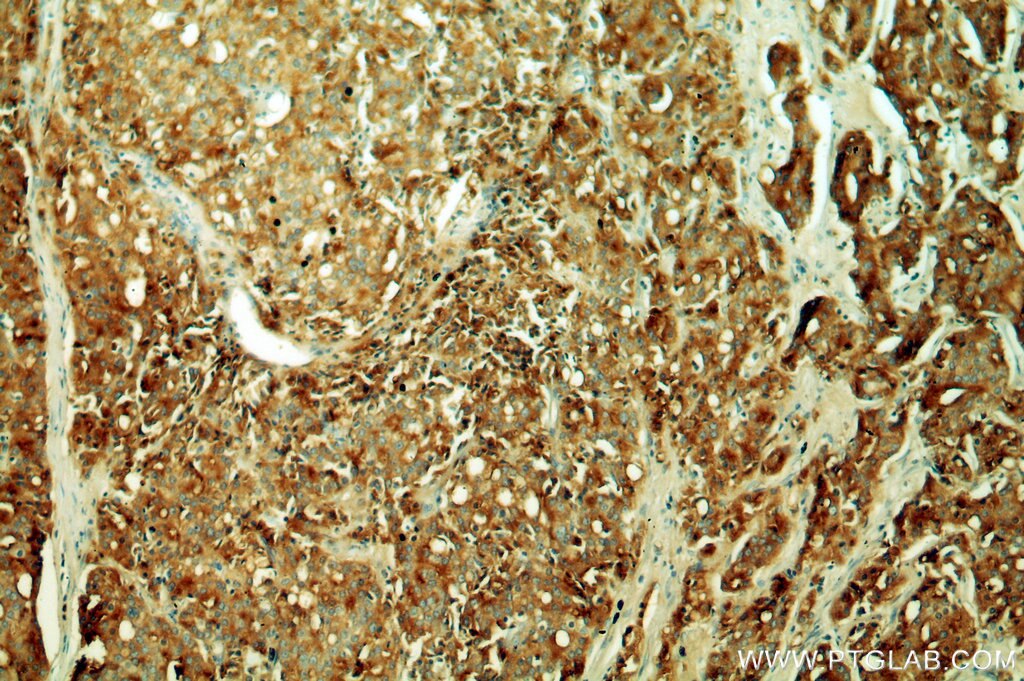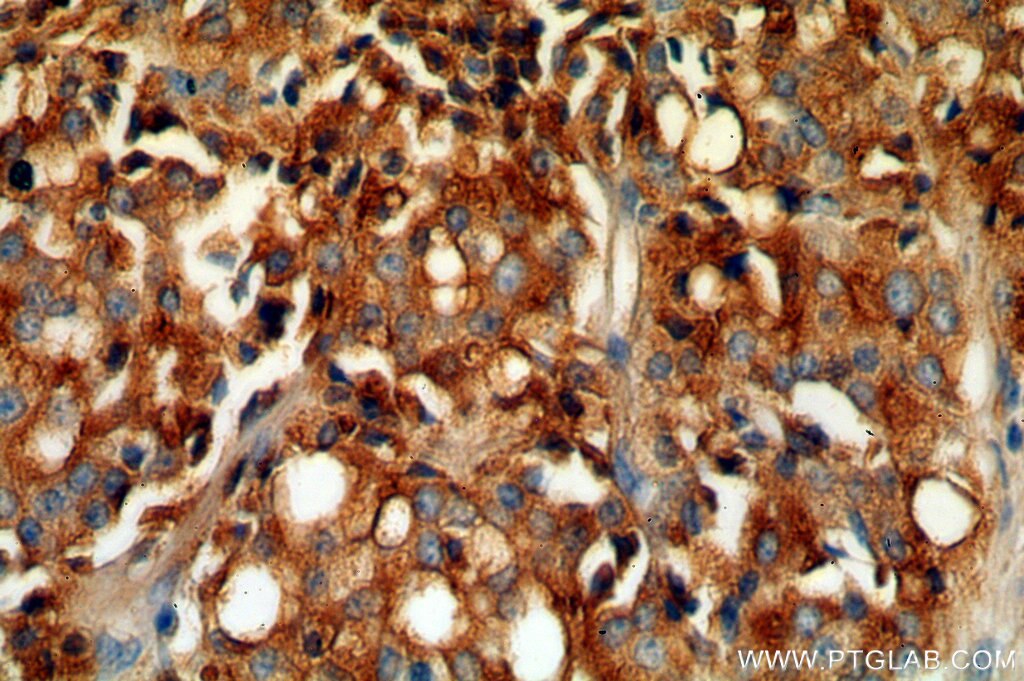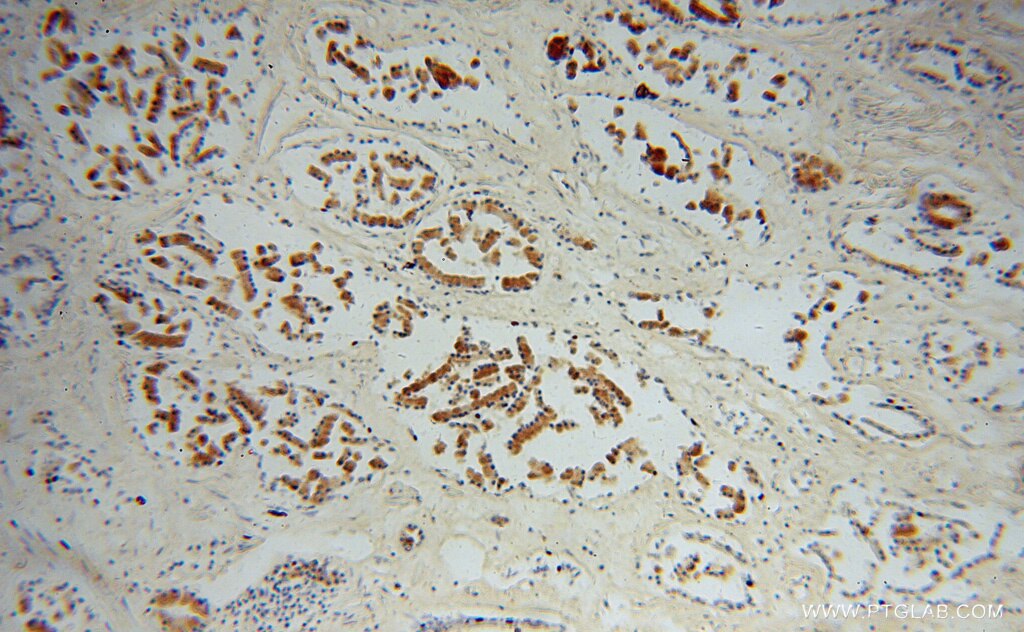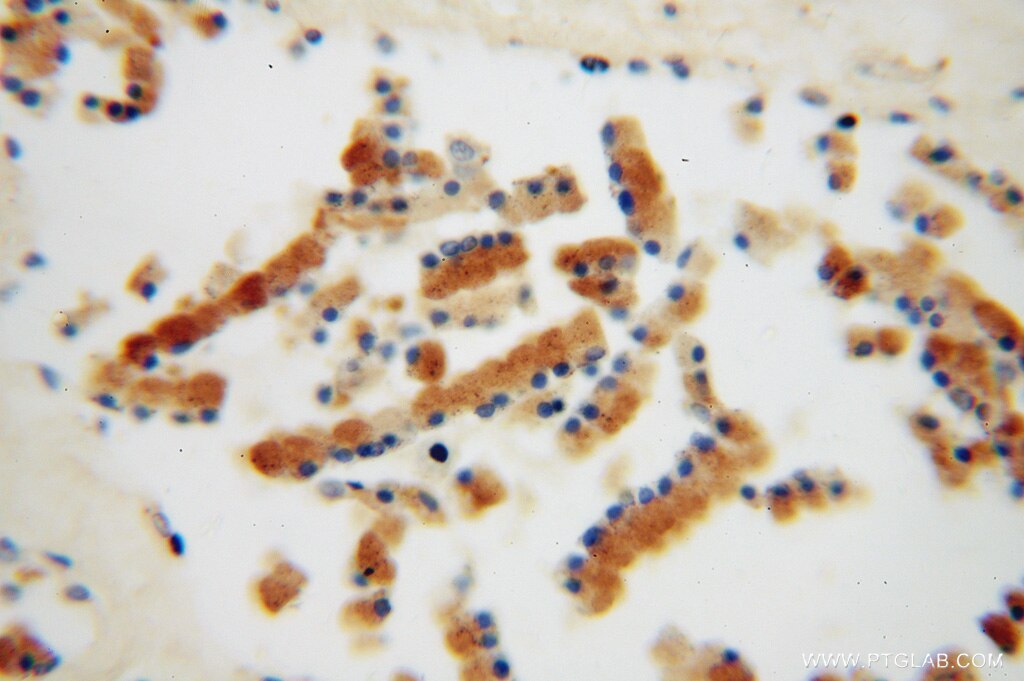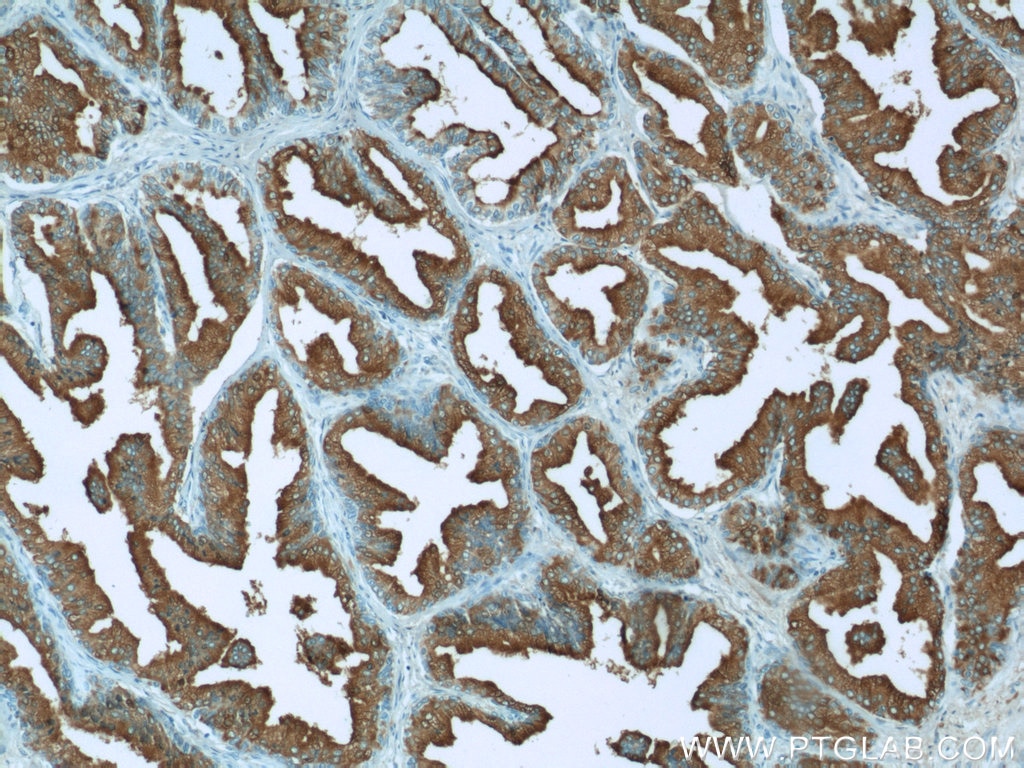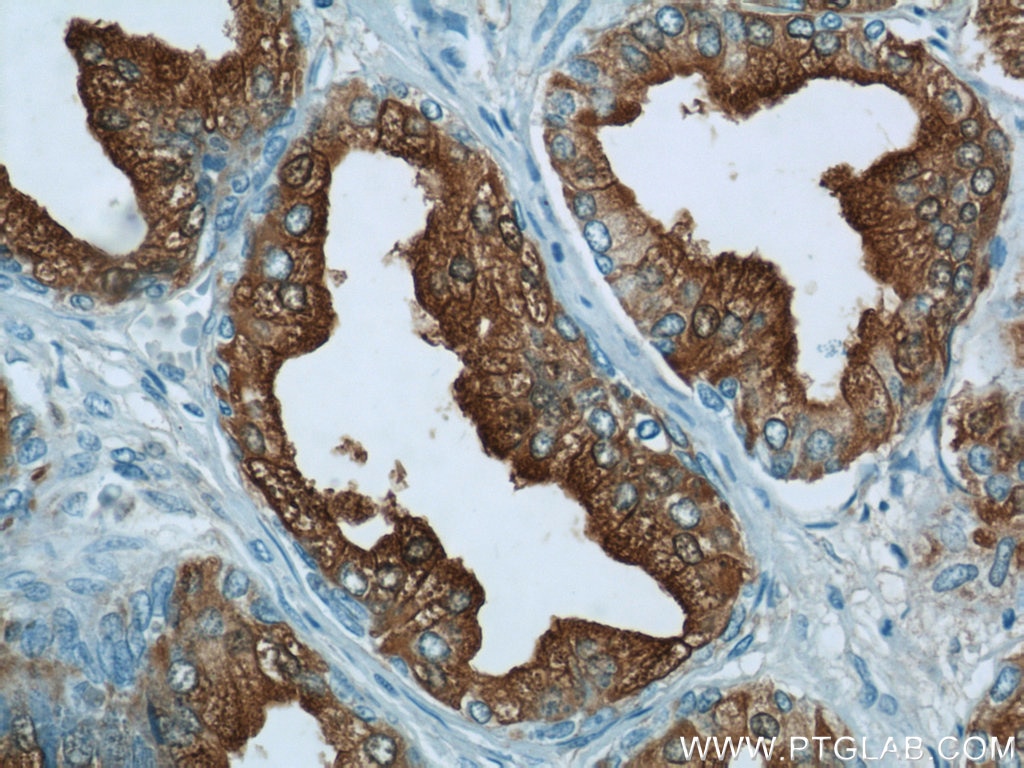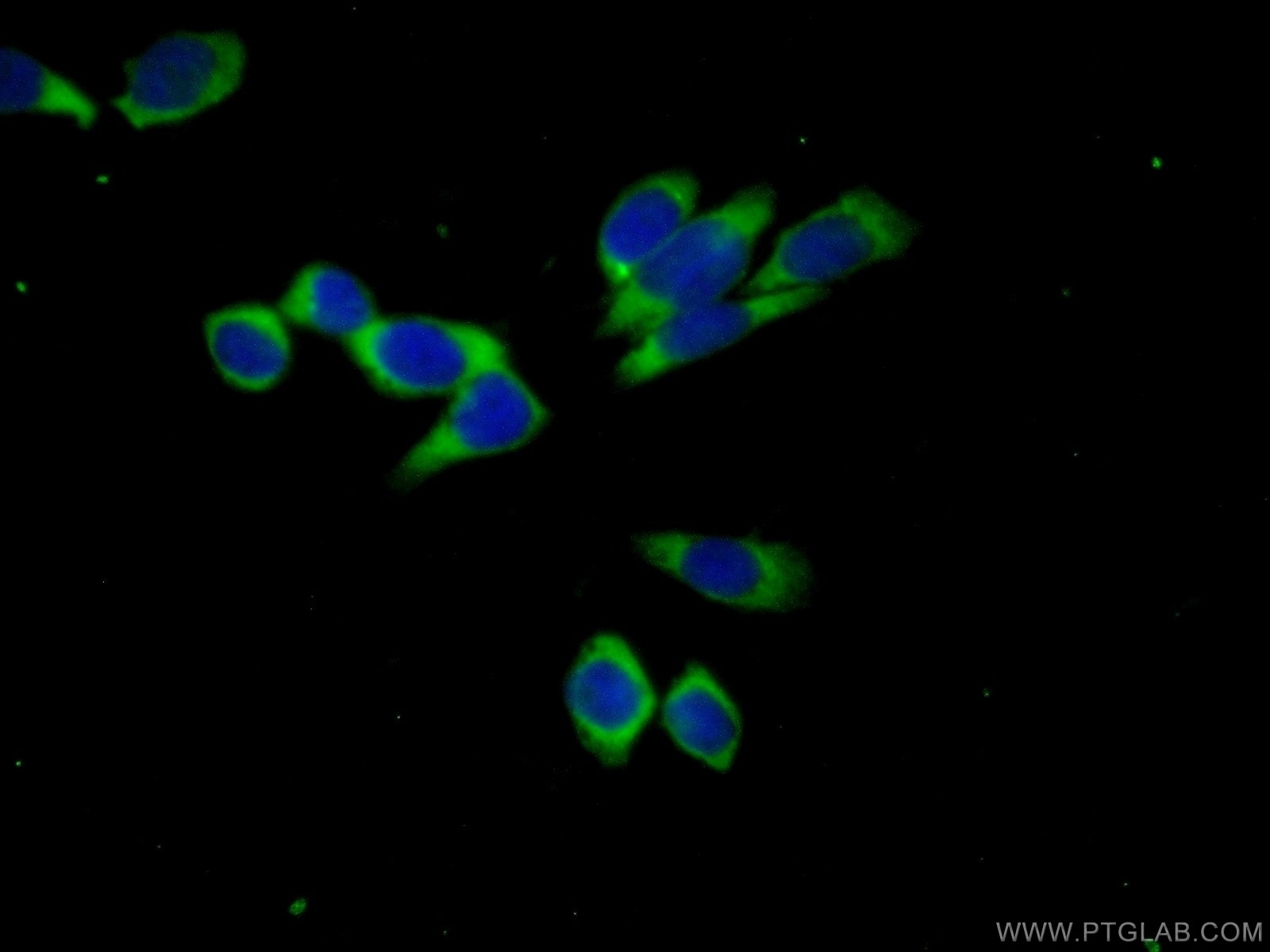ACPP Polyklonaler Antikörper
ACPP Polyklonal Antikörper für IF, IHC, WB, ELISA
Wirt / Isotyp
Kaninchen / IgG
Getestete Reaktivität
human, Maus und mehr (2)
Anwendung
WB, IP, IHC, IF, ELISA
Konjugation
Unkonjugiert
Kat-Nr. : 15840-1-AP
Synonyme
Galerie der Validierungsdaten
Geprüfte Anwendungen
| Erfolgreiche Detektion in WB | PC-3-Zellen, COLO 320-Zellen, Maushodengewebe, Mauslungengewebe, MCF-7-Zellen |
| Erfolgreiche Detektion in IHC | humanes Prostatakarzinomgewebe, humanes Prostatahyperplasie-Gewebe Hinweis: Antigendemaskierung mit TE-Puffer pH 9,0 empfohlen. (*) Wahlweise kann die Antigendemaskierung auch mit Citratpuffer pH 6,0 erfolgen. |
| Erfolgreiche Detektion in IF | PC-3-Zellen |
Empfohlene Verdünnung
| Anwendung | Verdünnung |
|---|---|
| Western Blot (WB) | WB : 1:500-1:2000 |
| Immunhistochemie (IHC) | IHC : 1:20-1:200 |
| Immunfluoreszenz (IF) | IF : 1:20-1:200 |
| It is recommended that this reagent should be titrated in each testing system to obtain optimal results. | |
| Sample-dependent, check data in validation data gallery | |
Veröffentlichte Anwendungen
| WB | See 1 publications below |
| IHC | See 3 publications below |
| IF | See 2 publications below |
| IP | See 1 publications below |
Produktinformation
15840-1-AP bindet in WB, IP, IHC, IF, ELISA ACPP und zeigt Reaktivität mit human, Maus
| Getestete Reaktivität | human, Maus |
| In Publikationen genannte Reaktivität | Huhn, Maus, Ratte |
| Wirt / Isotyp | Kaninchen / IgG |
| Klonalität | Polyklonal |
| Typ | Antikörper |
| Immunogen | ACPP fusion protein Ag8592 |
| Vollständiger Name | acid phosphatase, prostate |
| Berechnetes Molekulargewicht | 418 aa, 48 kDa |
| Beobachtetes Molekulargewicht | 50-60 kDa |
| GenBank-Zugangsnummer | BC007460 |
| Gene symbol | ACPP |
| Gene ID (NCBI) | 55 |
| Konjugation | Unkonjugiert |
| Form | Liquid |
| Reinigungsmethode | Antigen-Affinitätsreinigung |
| Lagerungspuffer | PBS mit 0.02% Natriumazid und 50% Glycerin pH 7.3. |
| Lagerungsbedingungen | Bei -20°C lagern. Nach dem Versand ein Jahr lang stabil Aliquotieren ist bei -20oC Lagerung nicht notwendig. 20ul Größen enthalten 0,1% BSA. |
Hintergrundinformationen
ACPP is also named as PAP(prostatic acid phosphatase),5'-nucleotidase, thiamine monophosphatas and Belongs to the histidine acid phosphatase family.This enzyme is a homodimeric glycoprotein with a subunit molecular mass of 50 kDa and is an androgen-stimulated secretory product of the human prostate gland(PMID:8132635).It is also a non-specific phosphatase and has been implicated in the progression of prostate cancer, which inactivates LPA in human seminal plasma(PMID:15280042). This protein has three glycosylation sites(PMID:10639192;12525165).
Protokolle
| Produktspezifische Protokolle | |
|---|---|
| WB protocol for ACPP antibody 15840-1-AP | Protokoll herunterladen |
| IHC protocol for ACPP antibody 15840-1-AP | Protokoll herunterladen |
| IF protocol for ACPP antibody 15840-1-AP | Protokoll herunterladen |
| Standard-Protokolle | |
|---|---|
| Klicken Sie hier, um unsere Standardprotokolle anzuzeigen |
Publikationen
| Species | Application | Title |
|---|---|---|
Biol Reprod Avian Prostatic Acid Phosphatase: Estrogen Regulation in the Oviduct and Epithelial Cell-Derived Ovarian Carcinomas. | ||
Am J Pathol PIK3CG Is a Potential Therapeutic Target in Androgen Receptor-Indifferent Metastatic Prostate Cancer. | ||
Eur J Pain Electroacupuncture relieves neuropathic pain by inhibiting degradation of the ecto-nucleotidase PAP in the dorsal root ganglions of CCI mice. | ||
Biochem Biophys Res Commun Dietary cholesterol affects expression of prostatic acid phosphatase in reproductive organs of male rats. |
